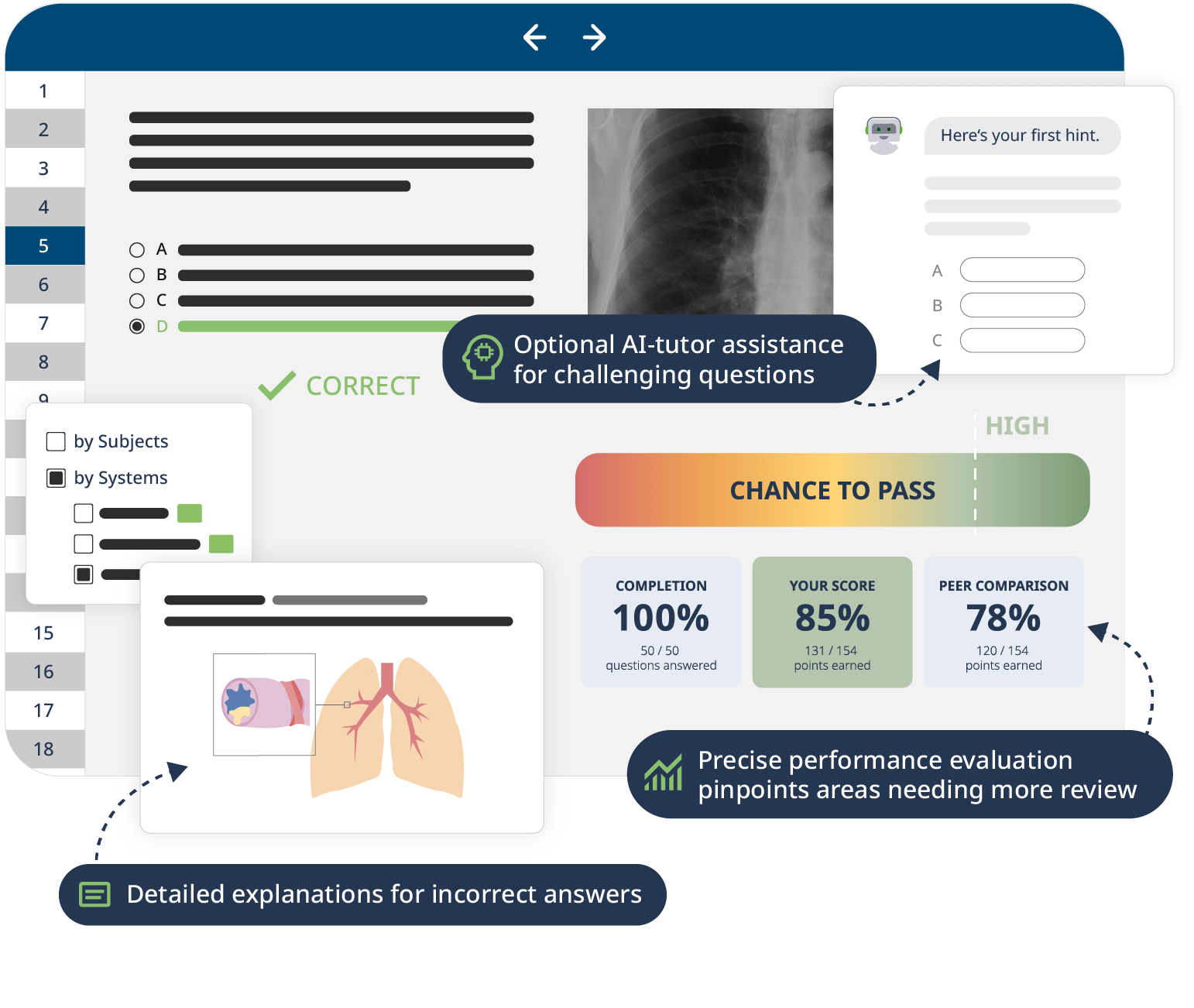Start your online radiology class
with Dr. Hetal Verma from Harvard Medical School
Radiology is an essential tool in diagnosing many conditions reliably. Getting used to radiological images of numerous techniques and applications and mastering their interpretation is a steep learning curve for many students.
This course covers six key areas: Introduction to Imaging, Thoracic Radiology, Abdominal Radiology, Musculoskeletal Radiology, Neuroradiology, and Pediatric Radiology. Your educator Hetal Verma, MD, will guide you through the radiographic techniques, how to recognize anatomical structures, and signs of conditions in image interpretations across different body systems. You will also learn specific considerations for pediatric imaging. Her structured approach will give you security in the basics and help you develop the critical skills needed to interpret radiological images accurately.
The combination of Video Lessons with interactive quiz questions, downloadable study materials, and a USMLE-style Qbank makes it easy to understand and retain the topics. By the end of this course, you will be more confident to make informed diagnostic decisions, and be well-prepared for your exams and future clinical practice.


















